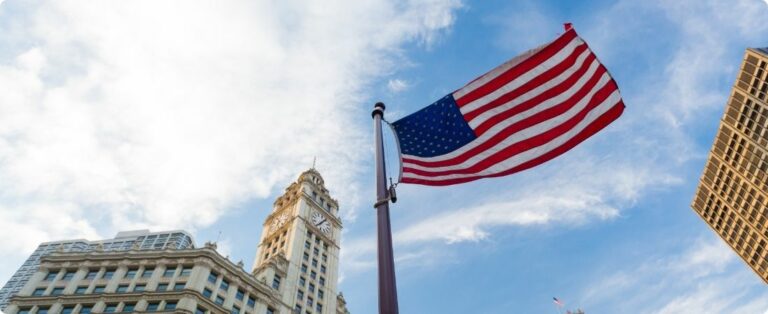The Brazilian trade balance recorded a record monthly surplus in July, with a positive balance of US$ 8.1 billion, considering the entire historical series starting in 1989. The previous record was from May 2017, with US$ 7.7 billion. The data was released this Monday (03), by the Foreign Trade Secretariat (Secex) of the Ministry of Economy. The surplus resulted from exports worth US$ 19.6 billion and imports of US$ 11.5 billion, totaling a trade flow of US$ 31.1 billion.
Exports for the month showed a drop of 2.9% in relation to July 2019 – when they reached US$ 20.2 billion –, reflecting the reduction of 14.7% in the prices of exported goods, despite a growth of 13.4% in total of shipments, measured by the quantum index.
Regarding imports, there was a reduction in prices (-7%) and quantities (-27.7%), which led to a drop of 35% in relation to the numbers from July 2019, when foreign purchases reached US$ 17.8 billion.
With these numbers, the positive balance in July 2020 represented an increase of 237.1% in relation to the surplus in July last year, which was US$ 2.4 billion. “We have a trade balance very shaped in accordance with what has been happening in the external scenario, in terms of the destination of our main exports and, on the import side, shaped by a domestic situation, which is in clear recovery, but which still has a time to reflect on imports”, commented the Secretary of Foreign Trade, Lucas Ferraz, at a press conference.
According to Secex data, there was an increase in quantity in all categories of exported products, with a reduction in prices, compared to July 2020 with the same month last year. The highlights in terms of quantities were the growth in shipments from the mineral extractive industry (+41.2%) and agriculture (+21.1%), but prices decreased, mainly in the extractive industry (-28.5%) and in the processing industry ( -13%).
In imports, there was a reduction in quantum, mainly in the extractive industry (-51.6%) and in the transformation industry (-20.9%), which accounts for the majority of Brazilian imports. There was also a reduction in prices, with a decrease of 19.5% in the extractive industry, 11% in agriculture and 7.4% in the processing industries.
YTD
The balance numbers from January to July 2020 show a reduction in exports (-6.4%), from US$ 129.6 billion to US$ 121.3 billion, and in imports (-10.5%), from US$ 101.5 billion to US$ 90.9 billion, compared to July 2019.
The trade balance thus rose 8.2% this year, reaching an accumulated value of US$ 30.4 billion compared to US$ 28.1 billion in the first seven months of last year. “When July arrived, the trade balance, which was a reduction, became an increase throughout the year”, highlighted the Undersecretary of Foreign Trade Intelligence and Statistics, Herlon Brandão.
Agriculture once again stood out in terms of exported quantities, with an increase of 20.5% in relation to shipments from January to July of the previous year. Secretary Lucas Ferraz notes that these numbers reflect “the high resilience of agricultural and agribusiness exports in general”.
According to him, this resilience is due to the characteristics of these products, which are food products and are less subject to income fluctuations. “Supply chains were less affected in the crisis caused by Covid-19, compared to manufacturing and service chains, and were helped by a dollar under more favorable conditions, helping and boosting our exports”, he explained.
DinTheexternal and internal micas
Ferraz said that the performance of the trade balance is reflecting the recovery dynamics of the external sector, because a large part of exports are driven by agribusiness and destined for the Asian continent. “It is the continent that demands our agricultural commodities and is recovering first from the Covid-19 crisis, ahead of the United States and Europe,” he stated.
This may even explain the lower performance of Brazilian industrial exports, which are very subject to external fluctuations, as they are products most affected by income fluctuations. “The main destinations for our industrial exports are the United States, Europe and above all Argentina, which are still suffering greatly from the shocks of the Covid-19 crisis”, he considered.
He also highlighted the good shipping performance of extractive commodities, especially oil and its derivatives, because, despite the drop in prices during the crisis, shipments have been strong, mainly to the Asian region.
On the import side, there is “a generalized drop, both industrial, agricultural and extractive”. This has a lot to do with the internal dynamics of the Brazilian economy, which is still in a recovery process. “Although the signs are clear of a recovery, it takes some time for this to be reflected in the results of foreign trade”, highlighted the secretary.
Estimates
He believes that, by the end of the year, the context may improve for manufactured exports, once the recovery in the United States and Europe is consolidated, “still surrounded by an environment of great uncertainty”. Based on the trend in the second quarter, mainly due to what has already been observed on the European continent, the secretary understands that, “if this recovery is consolidated in the second half of the year, it is possible that our industrial exports will also present a better performance”.
Secex predicts, for the end of this year, a reduction of around 10.1% in exports and 17% in imports, compared to last year.
Source: DATA
READ TOO:
{module 441}
{module 442}










